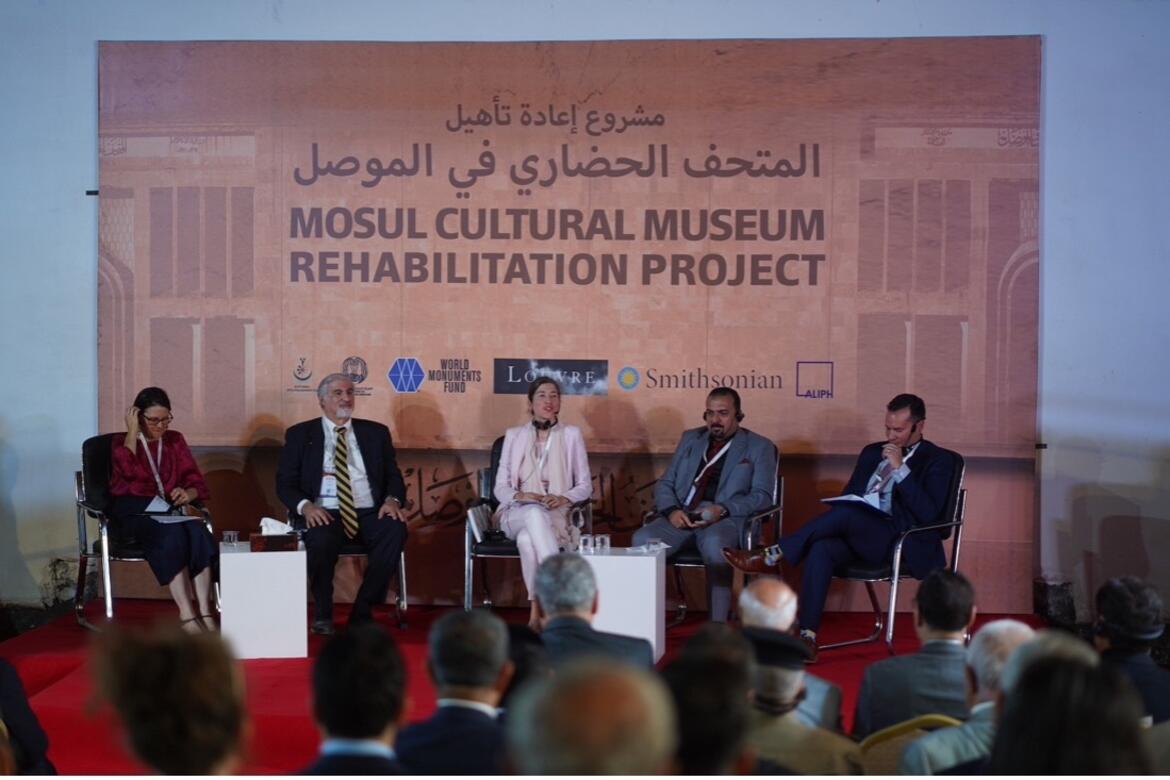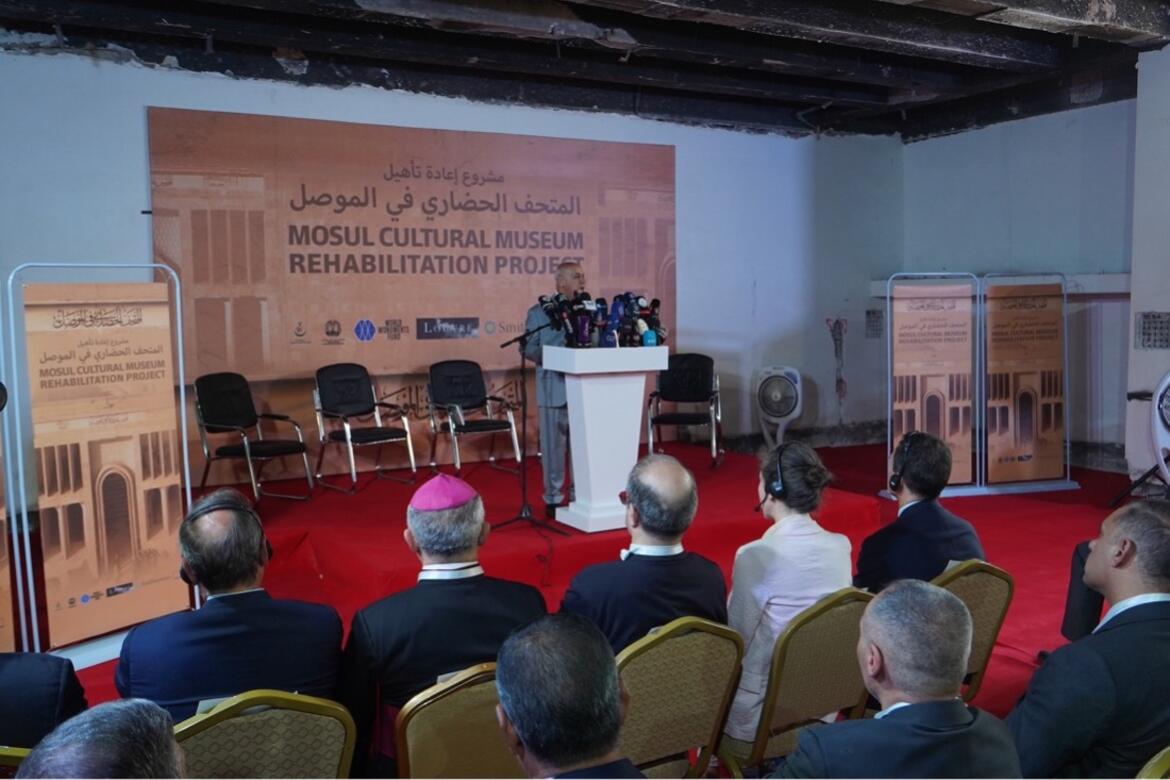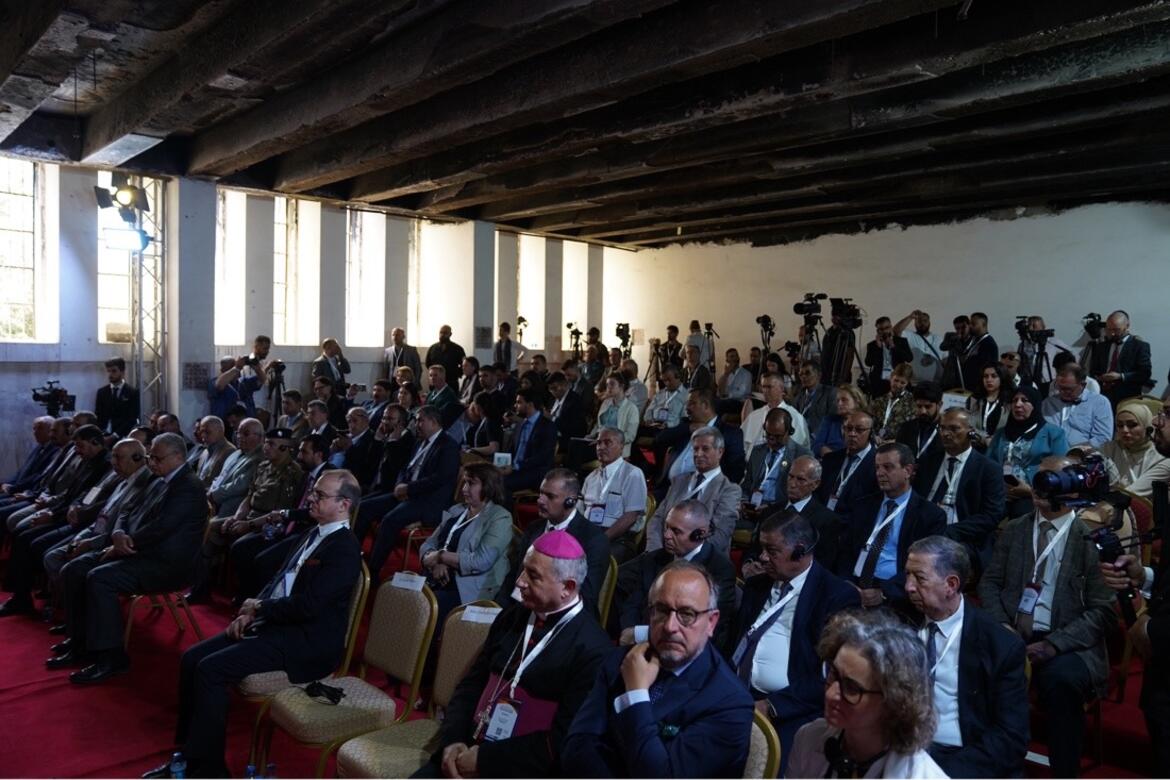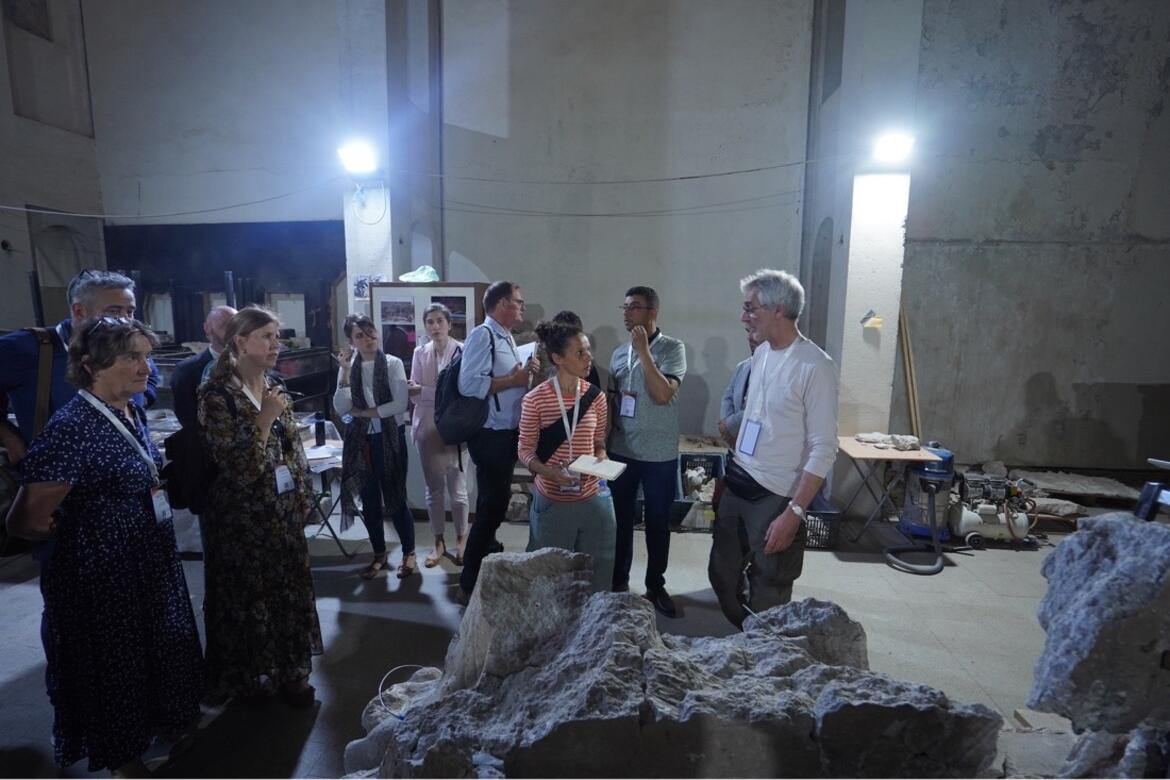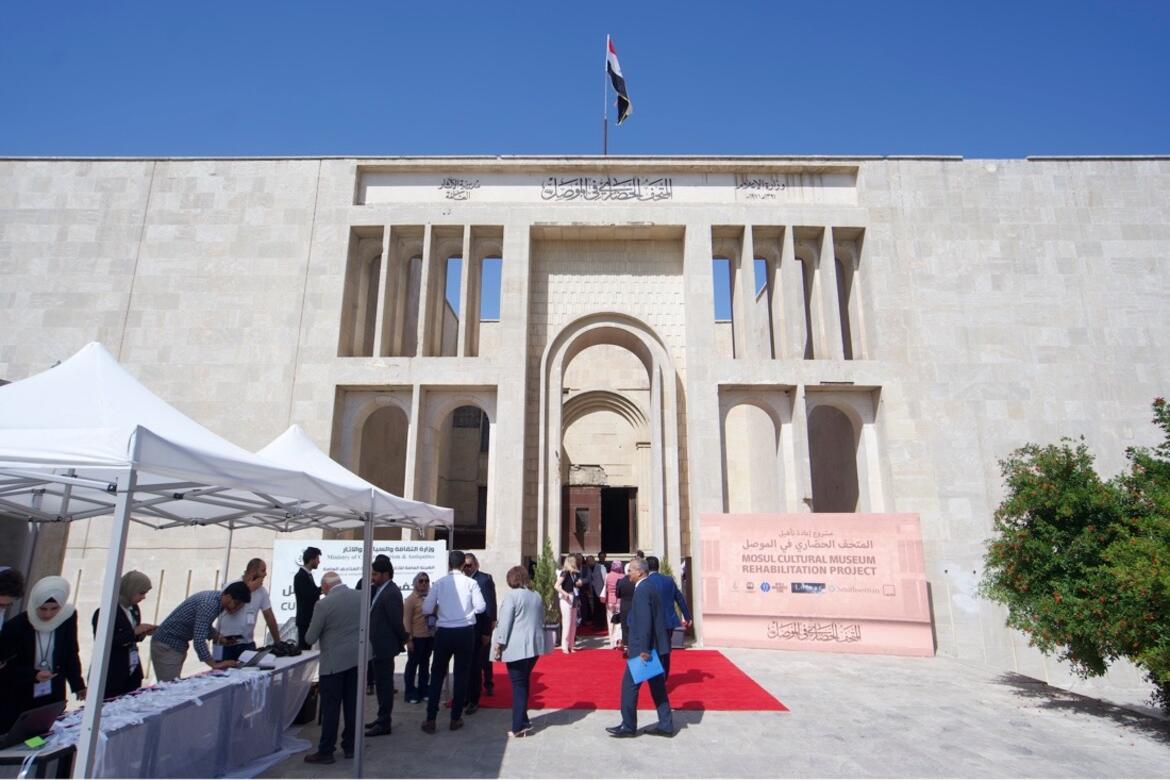At Mosul Cultural Musem Launch Event, a Celebration of “Life Overcoming Despair”
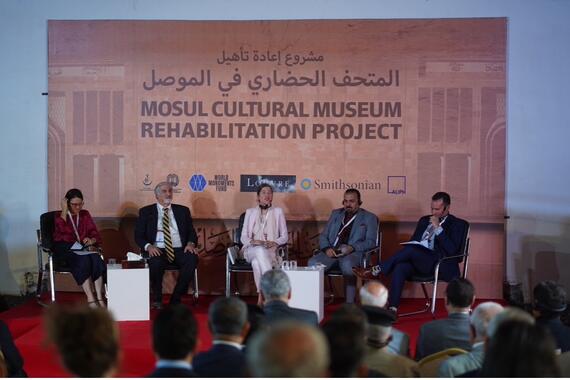
During Daesh’s occupation of Mosul, Iraq, the group published a video in February of 2015 that has since become infamous worldwide: footage of group members deliberately destroying invaluable artifacts in the Mosul Cultural Museum (MCM) and causing major damage to the building itself. In 2018, a year after the liberation of the city, a consortium of international and local partners (the State Board of Antiquities and Heritage (SBAH), Mosul Cultural Museum, the International alliance for the protection of heritage in conflict areas (ALIPH), the Musée du Louvre and the Smithsonian Institution) came together to rehabilitate the whole museum, the building as well as its collections. World Monuments Fund (WMF) joined this consortium in order to steer the building restoration in 2021. This past May, a new phase of restoration work at the museum was announced, part of a collaborative effort to bring the space back to life and return it to its rightful place as a cultural landmark for the region.
“We are proud to witness today the next stage in the restoration of the cultural heritage and civilization of the spirit of Mosul,” said Dr. Laith Hussein, Director of the State Board of Antiquities and Heritage (SBAH), as part of his opening remarks at the launch event, which drew 300 people and included live music and tours of the galleries and gardens.
These remarks were followed by a panel discussion featuring Zaid Ghazi Saadallah, Director of the Mosul Cultural Museum; Alessandra Peruzzetto, WMF’s Regional Director for the Middle East and North Africa; Ariane Thomas, head of the Oriental Antiquities Department at the Louvre; and Richard Kurin, Smithsonian Distinguished Scholar and Ambassador-at-Large. “A common understanding of the significance of this site as a cultural center and its potential to contribute to the overall recovery of Mosul is what brought all of the partner organizations to this project. This is the real vision,” said Dr. Jonathan S. Bell, Vice President of Programs, who moderated the discussion. Kurin echoed these statements in his own comments: “The restoration of the Mosul Museum is an investment in civility, tolerance, and the future. It is an affirmation by the people of Mosul, Iraq, the region, and the world that hope should triumph over despair, knowledge over ignorance, good over evil.”
The launch event also marked the opening of the exhibition The Mosul Cultural Museum: From Destruction to Rehabilitation, both on site at the MCM and online. The exhibition, which was open to the public until June 10, looks back on the rich history of northern Mesopotamia, from its earliest villages to the rise of the city of Mosul. The exhibition was created by the MCM and the Louvre with the support of ALIPH.
During the panel discussion, Thomas commended the extraordinary Iraqi team who worked alongside delegates from the Louvre to conserve damaged objects, some of which are now featured in the exhibition. She also noted the powerful symbolism of the galleries’ reopening after 20 years of closure due to conflict.
Valéry Freland, Executive Director of ALIPH Foundation, also addressed the project’s symbolic value in his closing remarks, arguing that it exemplified “life overcoming despair…professionals from around the world expressing solidarity with their Iraqi colleagues…how peace and sustainable development prevail over acts of violence and inhumanity.”
Learn More
World Monuments Fund safeguards cultural heritage around the globe, ensuring our treasured places are preserved for present and future generations.
Sign up for our newsletter to receive regular updates on our projects, stories from the field, upcoming events, and more!

